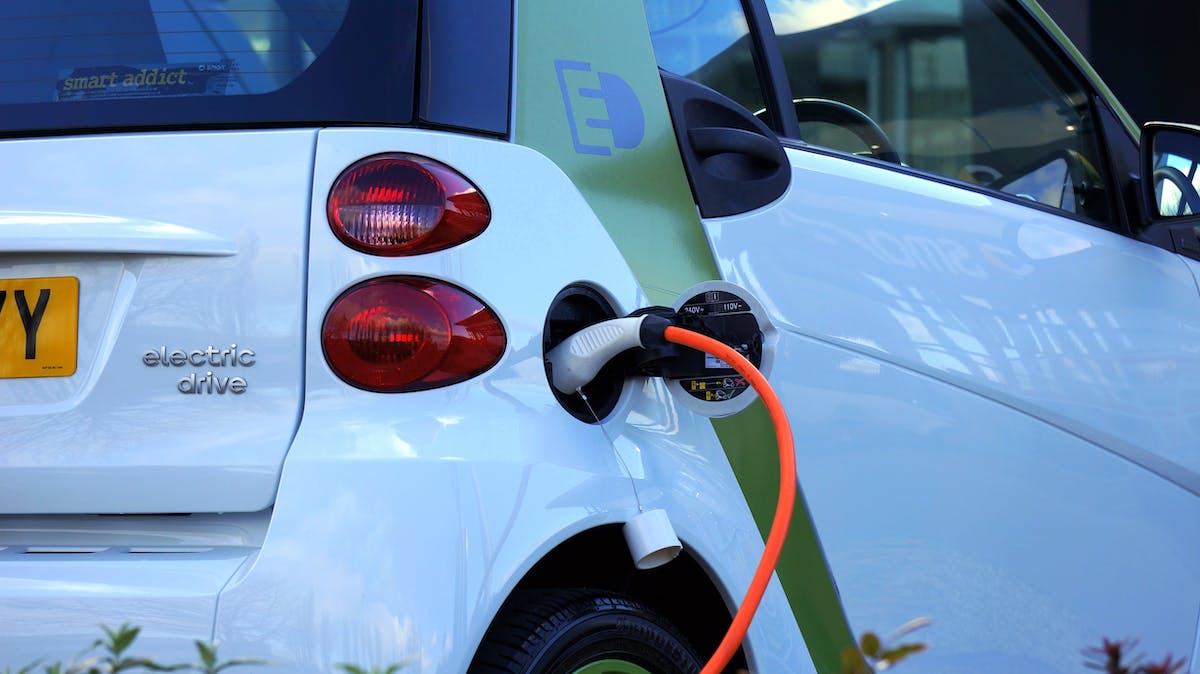Advertisement
DIY
What is the cost of charging an electric vehicle?

How much does it cost to charge an electric vehicle? Here's what …
Understanding Electric Vehicle Charging
Electric vehicles (EVs) are a popular choice for many reasons – they’re environmental friendly, offer smooth and quiet operation, and are more affordable to run than petrol or diesel engines. One major question that often comes up though is how much it actually costs to charge an EV at home. The cost can depend on various factors such as the type of electric vehicle, the capacity of its battery, and the electricity rates in your area.
Knowing the cost of charging an electric vehicle can help potential buyers make an informed decision. Keep in mind, though, that the prices can fluctuate depending on the variables mentioned earlier. It might be helpful to know, however, that most users find the overall running cost of an electric car to be significantly less than that of a regular vehicle.
For an idea of these costs, let's consider *Mary*. Mary lives in California and has recently bought a Nissan Leaf with a 40 kWh battery. She charges her vehicle at home during off-peak hours when the electrical rates are at their lowest.
- Mary’s off-peak rate is $0.12 per kilo-watt hour (kWh).
- The Nissan Leaf's battery capacity is 40 kWh.
- To fully charge the Leaf, Mary will use approximately 40 kWh of electricity.
- This means it would cost Mary around $4.80 to fully charge her Nissan Leaf at home during off-peak times ($0.12 x 40 kWh).
- If she was to do this every day, the cost would come to around $144 a month.
- Mary finds this cost significantly cheaper compared to what she used to spend on gas for her previous vehicle.
The Different Ways to Charge an EV
Besides charging the EV at home, there are also public charging stations and high-speed chargers available nowadays. Each option has its costs and benefits and is suitable for different situations.
Electric vehicles can be charged by plugging them directly into the regular electricity socket at your home or workplace. This method of charging requires no special equipment so it is the cheapest to set up. However, it also takes quite a bit longer than other methods because they use less power.
Public electric vehicle charging stations are becoming increasingly common in city centers, supermarkets, and workplaces. These tend to charge faster than a regular socket but will likely cost more. Then there are high-speed charging stations that provide very fast charging for a higher price.
Let's meet *John* who drives a Tesla Model 3 and often accesses Supercharger networks.
- He pays about $0.28 per kWh using the Tesla Supercharger network.
- The battery capacity of his Tesla Model 3 is around 75 kWh.
- So a full charge at a Supercharger station would cost John approximately $21 ($0.28 x 75 kWh).
- This is considerably more expensive than charging at home but gets the job done much faster.
- Charging at home might take him 7-10 hours while a Supercharger can do it in about an hour.
- Thus, this option works best for John when he's on the go and needs a quick boost.
A Brief Comparison
From our discussions above, it's clear that choosing between charging options involves a trade-off between time and cost. Besides these two factors, another consideration could be accessibility – how readily available is a charging station near your home or office?
Just like with traditional cars, “fueling” EVs comes with its own costs, but many users find them significantly lower than the expense associated with traditional vehicles, even when using faster, more costly charging options occasionally.
As an illustration, let's look at *Jane* who uses a mix of home and public charging for her Chevrolet Bolt.
- Jane’s electricity rate at home is $0.15 per kWh.
- Her Bolt’s battery capacity is 66 kWh, so a full charge costs around $9.90 ($0.15 x 66kWh) at home.
- At public stations, she pays around $0.30 per kWh so a full charge there would cost about $19.80 ($0.30 x 66 kWh).
- She charges her EV fully at home about 20 times a month, and at a public station about 10 times a month.
- So her total monthly cost comes to approximately $298.00 ((20 x $9.90) + (10 x $19.80)).
- Considering she drove a considerable distance each month, this was still lower than her gas expenses on a non-electric car.
Quality of Life Improvements
While the running costs are indeed important, another major advantage to consider with electric vehicles is the quality of life improvements that it brings about.
The obvious environmental benefits aside, these vehicles are generally quieter and smoother to run. Moreover, since you can generally charge your EV at home overnight, you save time and hassle going to and from gas stations.
There are also fewer moving parts in an electric motor compared to a combustion engine, which means potentially less wear and tear, and therefore lower maintenance costs.
Think about *Alex*, who has been driving his Ford Mustang Mach-E for a year now.
- Alex needs to recharge his 98.8 kWh battery every few days depending on his usage.
- This costs him around $11.86 each time, charging at his home rate of $0.12 per kWh.
- Over a year, his total cost would be around $1443.20 if he charged every other day.
- Alex enjoys the smooth and silent drive, as well as the convenience of charging at home.
- He's also noticed a reduction in overall vehicle maintenance expenses when compared to his previous non-electric car.
- Naturally, these factors make his electric vehicle ownership experience quite satisfying, despite the charging costs involved.
| Charging Option | Charging Cost | Pros | Cons |
|---|---|---|---|
| Home Charging | Depends on electricity rates and battery capacity, often cheaper than other options. | Cheap, Convenient, Can be done overnight | Slow |
| Public Charging | Varies based on provider, usually more expensive than home, but faster. | Faster than home, Becoming more readily available | Can be expensive, May require waits if busy. |
| High-Speed Charging | Most expensive, Often priced per minute. | Very fast, Good for long trips. | Expensive, Not suitable for regular use due to battery wear. |
Additional Costs
While the “fuel” costs for electric cars can be quite appealing, it's also important to factor in any additional costs that may come with this switch. For instance, you may need to invest in a home charging station, which is faster than a standard electrical outlet.
Likewise, if you are not on a plan where your electricity rates decrease during off-peak hours, you could face higher running costs. It is essential to get a complete understanding of these elements so that you can accurately gauge the feasibility of switching to an EV.
Consider *Joe,* who needs to install a Level 2 charger in his home for his Tesla Model Y.
- The cost of getting a Level 2 charger installed at home ranges from $300 to $1200.
- Joe gets one installed at the outset for about $850.
- This provides him with faster charging and greater convenience compared to using a standard power outlet.
- However, adds to his initial costs of switching to an EV.
- Over time though, Joe finds the investment worth its value given the time he saves and the overall reduction in his transportation expenses.
- Rather than being dissuaded by this upfront cost, he views this as part of his investment into a greener and more cost-effective commute.
In Summary
To sum up, the cost of charging an electric vehicle can vary significantly based on several factors such as where you're charging (home or public), what time you're charging (peak or off-peak), and even what kind of car you have.
However, despite these variables, the overall consensus among most EV owners seems to be that they usually wind up spending less on “fueling” their electric cars than they did on petrol or diesel vehicles.
In the end, while the upfront cost might be higher for electric vehicles, they can often end up being more economical in the long run – not to mention the considerable environmental benefits they offer.
Keeping everything discussed in mind, we can certainly say that each individual's situation is unique and requires personal evaluation. Be it Mary, John, Jane or Alex, each had their specific circumstances, usage patterns and preferences to consider.
- If home electricity rates are low and one has access to overnight charging – home charging seems very cost-effective.
- For those frequently on the move and needing faster charge times – public and high-speed charging stations might be preferable despite the higher cost.
- The convenience of EVs in terms of less maintenance, quieter operation and eco-friendly aspects can also be major factors influencing the decision.
- Additional costs such as a home charger installation should be figured into initial costs rather than viewing them as recurring expenses.
- Conducting a thorough cost analysis considering local rates and one's driving needs will yield the most accurate approximation of potential charging costs.
- Contacting local utility providers or speaking with current EV owners may offer further insight into what your own experience could look like.
Final Thoughts
There's no denying that electric vehicles symbolize a significant step towards cleaner, environment-friendly transportation. As battery technology improves and more charging stations become available, the efficiency and appeal of these vehicles will only increase.
Indeed, beyond just the costs, the transition to electric vehicles involves broader considerations regarding our lifestyle, our values, and our commitment to the environment. We, thus, hope that this guide helps you make a more informed choice about whether an electric vehicle might be the right fit for you.
In closing, *inevitably, there are many variables to factor in when considering the costs associated with owning and running an EV, and your individual circumstances can greatly impact these.*
- Overall, most electric vehicle owners find the cost of charging to be less than that of buying gas for a traditional car.
- The convenience and lower maintenance costs further add to their charm.
- Coupled with the environmental benefits, an EV could certainly be an economically smart and responsible choice.
- Make sure to analyze all potential costs and benefits associated with EV ownership before making your decision.
- The examples provided throughout this guide should give you a fair idea of what expenses you might be looking at.
- Remember, technology is constantly evolving, meaning things are only set to get better and more efficient in future!












